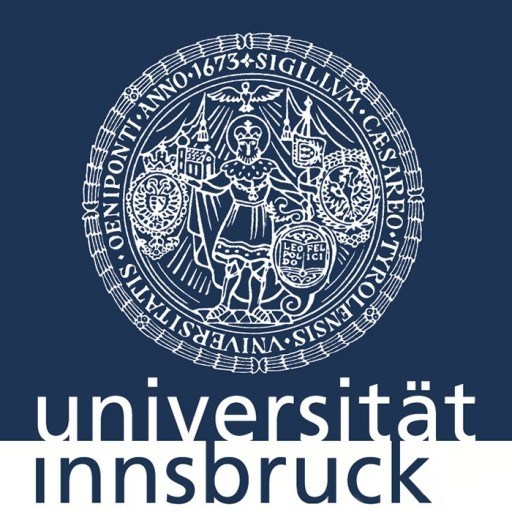Photos of university
The Atmospheric Environment program at the University of Science and Technology of Lille offers a comprehensive education designed to equip students with advanced knowledge and practical skills related to atmospheric sciences and environmental management. This multidisciplinary course combines principles of physics, chemistry, meteorology, and environmental engineering to understand the complex processes that govern our atmosphere and its impact on the environment and human health. Throughout the program, students explore various topics such as air pollution measurement and control, climate change, atmospheric chemistry, weather forecasting, and environmental policy. The curriculum emphasizes both theoretical foundations and hands-on experience through laboratory work, field studies, and project-based learning. Students gain proficiency in using modern analytical instruments and modeling tools to monitor and analyze atmospheric data, assess pollution levels, and develop effective mitigation strategies. The program also prepares students to address contemporary environmental challenges by fostering critical thinking, problem-solving abilities, and interdisciplinary collaboration. With opportunities for internships and research projects, graduates are well-positioned to pursue careers in environmental consultancy, governmental agencies, research institutions, or continue their studies at the postgraduate level. The university’s state-of-the-art facilities and strong industry connections ensure that students receive a high-quality education aligned with current scientific and technological advancements. By the end of the program, students will be capable of assessing atmospheric impacts, designing sustainable solutions, and contributing to the global efforts to protect our environment from air pollution and climate change. This program is ideal for individuals passionate about environmental issues and seeking to make a tangible difference in how we understand and preserve the atmospheric conditions essential for life on Earth.
The Atmospheric Environment degree program at the University of Science and Technology of Lille offers students a comprehensive education in the science and management of atmospheric phenomena. This multidisciplinary program integrates knowledge from meteorology, environmental science, chemistry, physics, and air quality management to prepare graduates for careers addressing pressing environmental challenges related to the atmosphere. Throughout the course, students explore the fundamental principles of atmospheric composition, dynamics, and processes that influence weather patterns and climate systems. Core modules cover atmospheric physics, chemistry, data analysis, and modeling techniques, providing students with the technical skills necessary to analyze and interpret atmospheric data.
A significant component of the program focuses on air pollution sources, dispersion, and impacts on human health and ecosystems. Students learn about monitoring techniques, pollution control technologies, and policies aimed at reducing emissions. Emphasis is placed on understanding regional and global climate change issues, including greenhouse gases, aerosols, and their effects on climate variability. The program also includes practical training through laboratory work, field studies, and internships, allowing students to apply theoretical knowledge to real-world environmental situations.
Interdisciplinary projects encourage students to develop innovative solutions for managing atmospheric pollution and mitigating climate change. The curriculum fosters critical thinking, problem-solving, and effective communication skills essential for working in environmental consultancy, governmental agencies, research institutions, and international organizations. Graduates will be equipped to analyze atmospheric data, assess environmental impacts, and develop policies and strategies to improve air quality and address climate challenges. The program aims to produce professionals who can contribute to sustainable development and environmental preservation at local, national, and global levels, addressing the complex issues facing our atmosphere in the 21st century.
The Atmospheric Environment program at the University of Science and Technology of Lille is designed to provide students with a comprehensive understanding of the scientific principles governing atmospheric processes and environmental impact assessments. The curriculum covers core topics such as atmospheric chemistry, meteorology, air quality monitoring, pollution control technologies, climate change, and environmental policy. Students are required to complete a series of foundational courses in physics, chemistry, and mathematics to build a solid scientific base. Advanced courses focus on the analysis of air pollutants, modeling atmospheric dispersion, and developing mitigation strategies to reduce environmental impact. The program emphasizes practical laboratory skills, fieldwork, and data analysis, enabling students to conduct independent research and contribute to environmental solutions.
In addition to coursework, students undertake a significant research project or thesis during their final year, which involves designing experiments, collecting field data, and applying analytical techniques to real-world problems related to atmospheric environment. Internships with environmental agencies, research institutes, or industry partners are strongly encouraged to enhance practical experience and professional networking. The program also requires students to participate in seminars, workshops, and conferences to stay current with technological advances and policy developments in atmospheric science.
Language proficiency is required, with instruction primarily in English, and students are expected to demonstrate good communication skills through written reports and oral presentations. The program is structured to prepare graduates for careers in environmental consultancy, regulatory agencies, research institutions, or further academic study. Successful completion of the program includes passing all coursework with the required grades, completing the research project, and fulfilling any internship or practical training components. Overall, the program aims to produce graduates capable of addressing complex environmental challenges through scientific knowledge, technical skills, and sustainable practices.
The Atmospheric Environment program at the University of Science and Technology of Lille offers several financing options to support students throughout their studies. Tuition fees are set according to the French higher education system and may vary depending on whether students are nationals of the European Union or international students. Generally, students can expect tuition fees to be approximately €2,770 per year for European Union students and higher for international students, subject to official updates.
Financial assistance is available in the form of government grants, scholarships, and bursaries. French students and EU nationals may apply for scholarships from the French government or regional authorities, which can significantly reduce the financial burden. The university also offers competitive merit-based scholarships based on academic performance, which can cover part or all of the tuition fees. International students are encouraged to seek scholarships offered through bilateral agreements, international organizations, or private foundations, although these are limited.
Furthermore, students may opt for student loans, which are available through French banks and financial institutions. These loans typically feature favorable interest rates and repayment conditions, especially if the student plans to work in France after graduation. Part-time work opportunities are also accessible for students, allowing them to supplement their income and gain valuable professional experience. The university's career services and international office provide assistance in finding internships and part-time jobs compatible with students’ schedules.
Living costs in Lille are relatively affordable compared to other European cities, which can help students manage their finances better. Expenses include accommodation, food, transportation, study materials, and personal expenses. Students are advised to budget accordingly and explore university accommodation options, which are often more economical. The university also provides guidance on managing finances and accessing social services if needed.
Overall, financing a degree in Atmospheric Environment at the University of Science and Technology of Lille involves a combination of tuition fees, scholarships, government grants, student loans, and part-time work. Prospective students are encouraged to research specific scholarship opportunities early and consult the university’s financial aid office for detailed guidance on available funding sources and application procedures.
The Atmospheric Environment program at the University of Science and Technology of Lille offers students an in-depth understanding of the atmospheric processes and their impact on the environment and human health. This multidisciplinary program combines elements of physics, chemistry, meteorology, and environmental engineering to prepare graduates for careers in environmental monitoring, air quality management, and atmospheric research. Students are trained to analyze atmospheric composition, understand pollution sources and dispersion, and develop solutions to reduce environmental and health risks associated with air pollution. The curriculum includes coursework in atmospheric physics, atmospheric chemistry, climate change, air pollution control technologies, and modeling of atmospheric phenomena. Practical training is emphasized through laboratory work, field studies, and internships with environmental agencies and research institutions. The program aims to equip students with both theoretical knowledge and applied skills, enabling them to contribute effectively to environmental policy-making, pollution mitigation strategies, and scientific research. Graduates of this program are expected to find employment in government agencies, environmental consulting firms, research laboratories, and international organizations focused on climate and air quality issues. The program also encourages interdisciplinary collaboration and innovation, fostering a comprehensive understanding of the atmospheric processes that influence global and regional environmental change. It prepares students for further research or advanced degrees in atmospheric sciences or related fields, and emphasizes the importance of sustainable development and environmental stewardship. The university prides itself on its strong scientific research components, state-of-the-art laboratories, and partnerships with industry and government entities to provide students with real-world experience. Overall, the Atmospheric Environment program is designed to produce skilled professionals capable of addressing the complex challenges of air quality and climate change in a rapidly changing world.










